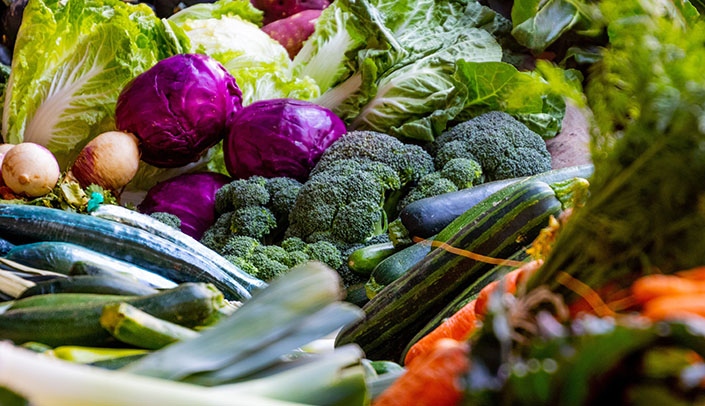World Vegetarian Day is observed annually on Oct. 1. Its aim is to bring awareness about the benefits of a vegetarian diet on human health, animal welfare, the environment and more. Eating less meat is one of the most significant ways an individual can reduce their environmental impact while also improving their own health.
According to the American Dietetic Association, eating a well-planned vegetarian diet may help reduce the risk of certain diseases, including heart disease. In fact, “a growing body of scientific evidence indicates that wholesome vegetarian diets offer distinct advantages compared to diets containing meat and other foods of animal origin” due to higher levels of certain nutrients and lower levels of saturated fat and cholesterol. Vegetarian diets can be beneficial in the prevention and treatment of everything from cardiovascular disease and hypertension to diabetes to cancer, osteoporosis and a variety of other conditions.
The livestock industry is responsible for about 14.5% of global greenhouse gas emissions, and cattle (both meat and dairy production) account for 65% of those emissions. Widespread adoption of vegetarianism would have a significant impact on emissions worldwide. It also could save as much as $1 trillion annually in health care costs and lost productivity — and could save around 7 million lives. Widespread veganism (no animal-based products) would have an even greater impact.
If cutting out meat from your diet entirely sounds too difficult, try starting small. Eliminate meat for one day or one meal a week, or replace meat with a substitute such as tofu or plant-based alternatives. By experimenting with new vegetarian recipes on that day, you can find out which dishes you can easily include in your regular routine. One of the common mistakes people make when they become vegetarian is to eat more processed food, which negates the health benefits. Instead, be sure you do a little research about the nutrients you need and how you can get them through plants. Soon, you’ll be on your way to helping drastically cut greenhouse gas emissions and improving your health.
